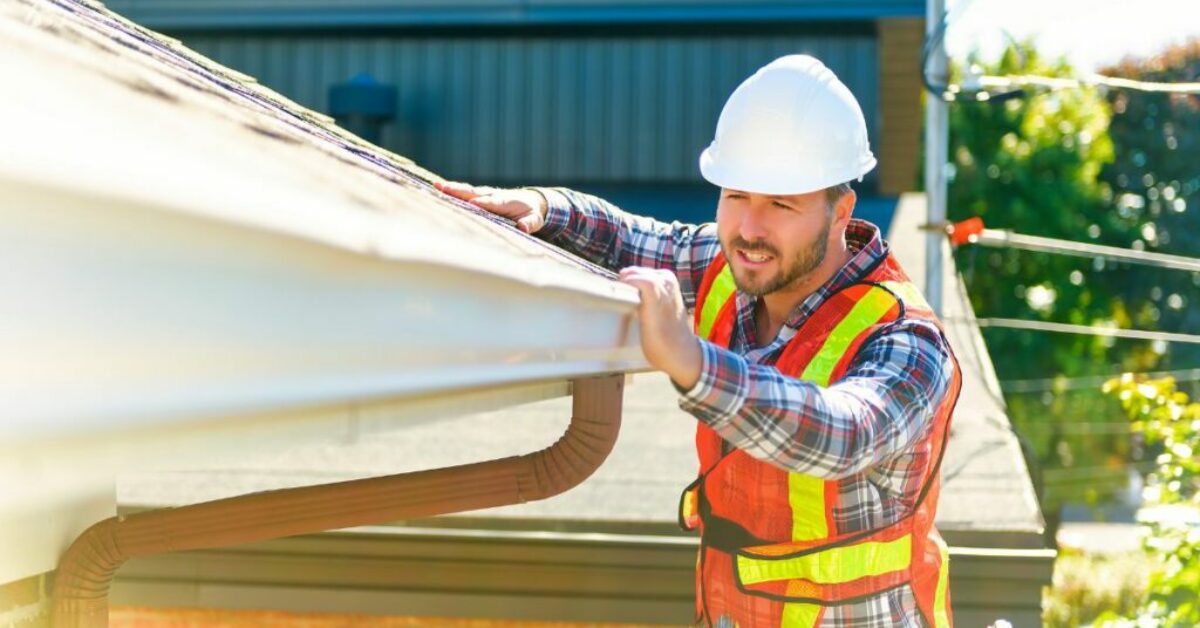How To Become A Roof Inspector?
Are you interested in pursuing a career as a roof inspector? As the construction industry continues to thrive, the demand for skilled professionals in the field of roof inspection is on the rise. In this article, we will guide you through the steps towards becoming a roof inspector, the necessary skills, and the potential benefits of working in this field.
Steps To Becoming A Roof Inspector
Roof inspection is an important aspect of building maintenance and safety. It involves assessing the condition of a roof and identifying any potential problems that may lead to leaks or other damage. If you are interested in becoming a roof inspector, there are several steps you need to take to prepare for this career.
- Education
While a high school diploma or equivalent is the minimum educational requirement for becoming a roof inspector, it is recommended to pursue further education in a related field. A degree in construction management, architecture or civil engineering can provide you with a deeper understanding of building structures and materials, which is essential for roof inspection. Additionally, many certification programs require completion of certain courses or degrees in order to be eligible for certification.
There are several certification programs available that specialize in roofing systems and inspection. These programs offer training in materials, safety, and inspection techniques related to residential and commercial roofs. Some of the most popular certification programs include the Certified Roofing Inspector (CRI) program offered by the National Roofing Contractors Association (NRCA), and the Roofing Inspection and Maintenance (RIM) program offered by the Roofing Consultants Institute (RCI). Roofing Consultants Institute (RCI) is now International Institute of Building Enclosure Consultants (IIBEC). - Experience
Experience in the construction industry is also essential for becoming a successful roof inspector. Many aspiring roof inspectors start their career as a roofer or construction worker. This provides them with hands-on experience in roofing repair and replacement, as well as familiarity with different types of roofs and their proper installation.
It is recommended to gain a few years of experience, depending on the level of certification sought after. For example, the CRI program requires at least two years of experience in roofing, while the RIM program requires at least five years of experience in roofing or a related field.
During your experience in the construction industry, it is important to focus on building your knowledge of roofing systems and materials. This can be achieved by working closely with experienced roofers, attending training sessions, and staying up-to-date with industry news and developments.
Becoming a roof inspector requires a combination of education and experience. By pursuing a degree in a related field, completing certification programs, and gaining hands-on experience in the construction industry, you can prepare yourself for a successful career in roof inspection.
Skills Needed For Becoming A Roof Inspector
A roof inspector requires a combination of technical, physical, and analytical skills. But what does it mean to have these skills, and how do they apply to the job of a roof inspector? Let’s take a closer look.
Technical Skills
Roof inspectors need to have technical knowledge and an understanding of the various types of roofing systems, materials, and installation methods. This knowledge comes from years of experience in the industry, as well as specialized training and education. A deep understanding of the construction process and procedures is a must, as inspectors need to be able to identify potential problems before they become major issues. Inspectors must also be well-versed in building codes and regulations related to roof installations, as well as any changes or updates to the codes. They must monitor and keep up with the current technologies and roofing advancements that produce new materials and installation techniques.
Having a strong technical background is essential for a roof inspector, as it allows them to make informed decisions and recommendations based on their findings. Without this knowledge, inspectors would not be able to accurately assess the condition of a roof or identify potential issues.
Physical Skills
Roof inspection often requires physical stamina and capability, as well as a good balance and agility. Inspectors should be able to climb on and work safely on a roof, as well as inspect chimneys, gutters, and downspouts. This requires a high level of physical fitness, as well as the ability to work at heights. They must also be able to work in different weather conditions, including rain and heat. In addition, they should have exceptional eyesight as even tiny defects on a roofing system can indicate massive threats.
Having strong physical skills is crucial for a roof inspector, as it allows them to access all areas of a roof and identify any potential problems. Without this ability, inspectors would not be able to perform their job effectively or safely.
Analytical and Communication Skills
Roof inspectors need to have analytical and critical thinking required for the job. This helps perform risk assessments and continually evaluate potential threats to the safety and operability of a roof. Inspectors must also have excellent communication skills; they will need to build relationships with contractors, homeowners, and engineers, explaining roof issues clearly, making informed decisions, and ensuring safety and compliance.
Having strong analytical and communication skills is essential for a roof inspector, as it allows them to effectively communicate their findings and recommendations to clients. It also allows them to work collaboratively with other professionals in the industry, such as contractors and engineers, to ensure that any issues are addressed in a timely and effective manner.
Overall, becoming a roof inspector requires a unique combination of technical, physical, and analytical skills. It is a challenging and rewarding career that requires a commitment to ongoing learning and development to stay up-to-date with the latest technologies and advancements in the industry.
What is a Roof Inspector?
Roof inspectors are an essential part of the construction industry. They play a vital role in ensuring that buildings are safe and secure for their occupants. A roof inspector must have a keen eye for detail, be physically fit, and have a good understanding of construction materials and methods.
Roof inspectors work in a variety of settings, including residential, commercial, and industrial buildings. They may work for a construction company, a roofing contractor, or as an independent consultant. Regardless of their employer, their primary responsibility is to ensure that the roof is structurally sound and meets all safety standards.
During their inspections, roof inspectors will climb onto the roof to examine the structure and identify any defects or damage. They will look for signs of wear and tear, such as cracks, holes, or missing shingles. They will also inspect the flashing around chimneys, vents, and other roof penetrations to ensure that they are properly sealed.
In addition to visual inspections, roof inspectors may use specialized equipment to assess the condition of the roof. This may include moisture meters to detect hidden leaks or thermal imaging cameras to identify areas of heat loss.
Once their inspection is complete, roof inspectors will prepare a detailed report outlining their findings. This report will typically include photographs and diagrams to illustrate any defects or damage. They will also provide recommendations for repairs or replacement of the roof if necessary.
The role of a roof inspector is critical in ensuring the safety and integrity of buildings. They play a crucial role in identifying potential problems before they become major issues and help to ensure that buildings are safe and secure for their occupants.
The Benefits of Working as A Roof Inspector
Working as a roof inspector offers numerous benefits. Firstly, it is a highly sought-after profession that offers job security and the potential for career growth. As the demand for building inspection continues to rise, the demand for ceiling inspectors also increases.
However, there are more benefits to working as a roof inspector than just job security and growth potential. Let’s explore some of these benefits in more detail.
Attractive Salary
Secondly, the salary of a roof inspector is quite attractive as per the job requirements, experience, and certifications a person holds. Roof inspectors earn a good living wage, and the salary can increase with experience and additional certifications. According to ZipRecruiter, the average salary in the United States is around $54,939/year as of June 2024. This makes it an excellent career choice for those who want to earn a good living while doing something they enjoy.
Flexibility
Roof inspectors also enjoy a high degree of flexibility in their work. They can work independently or as part of a team, depending on their preference. This flexibility allows roof inspectors to tailor their work to their lifestyle and work-life balance.
Professional Satisfaction
Finally, working as a roof inspector presents a unique challenge and professional satisfaction. Roof inspectors are regularly solving problems and ensuring that safety standards are met before any roofing system poses a significant threat. They play a crucial role in ensuring that buildings are safe and secure for the people who use them.
Working as a roof inspector offers numerous benefits, including job security, growth potential, an attractive salary, flexibility, and professional satisfaction. If you enjoy problem-solving and ensuring the safety of others, then a career as a roof inspector may be the perfect fit for you.
Every job requires some time and effort to reach the destination. Becoming a competent roof inspector requires education, experience, technical and physical skills, and analytical and communication capabilities. From working in construction to specializing in roofing inspection, the path towards becoming a roof inspector is a challenging but a rewarding career. Embrace the industry, challenge yourself, and prepare to make a difference.




